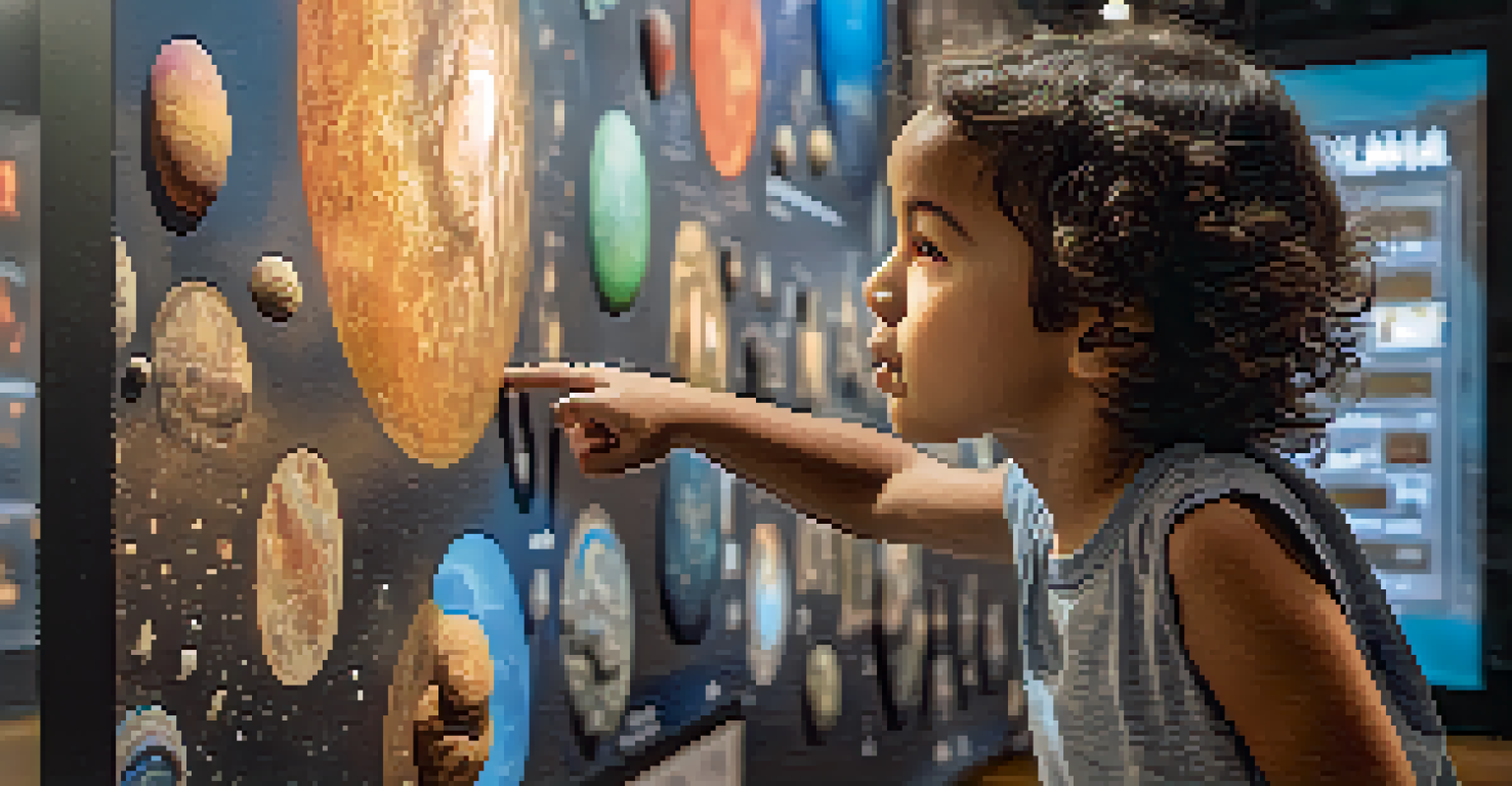Encouraging Lifelong Learning with Inquiry-Based Approaches

Understanding Lifelong Learning and Its Importance
Lifelong learning is the continuous, voluntary pursuit of knowledge for personal or professional development. It's not just a trend; it's a mindset that can lead to greater adaptability in our rapidly changing world. By embracing lifelong learning, individuals can enhance their skills, discover new interests, and stay relevant in their fields.
Education is not the filling of a pail, but the lighting of a fire.
This commitment to learning can open doors to new opportunities, whether in the workplace or in personal endeavors. For example, someone who dedicates time to learn new software can improve their job prospects significantly. This adaptability isn't just beneficial for personal growth; it's crucial for organizations that need to innovate and evolve.
Ultimately, lifelong learning fosters resilience, helping individuals navigate challenges with a proactive approach. By cultivating this habit, we not only enrich our own lives but also contribute positively to our communities and workplaces.
What Is Inquiry-Based Learning?
Inquiry-based learning (IBL) is an educational approach that encourages students to ask questions, investigate, and discover answers. Rather than passively receiving information, learners engage actively with the material, sparking curiosity and deeper understanding. This method is particularly effective in promoting critical thinking and problem-solving skills.

Consider a science class where students design their own experiments instead of following a set procedure. This hands-on exploration not only makes learning more engaging but also helps students develop a genuine interest in the subject matter. IBL transforms the classroom into a dynamic environment where learners feel empowered to take charge of their education.
Lifelong Learning Enhances Adaptability
Embracing lifelong learning allows individuals to develop new skills and interests, making them more adaptable in a rapidly changing world.
By fostering a culture of inquiry, educators can inspire a love of learning that extends beyond the classroom. This approach aligns perfectly with the principles of lifelong learning, as it encourages individuals to remain curious and seek knowledge throughout their lives.
The Connection Between Inquiry and Lifelong Learning
Inquiry-based approaches naturally complement the concept of lifelong learning by promoting self-directed exploration. When learners are encouraged to ask questions and seek answers, they develop the intrinsic motivation needed for continuous education. This motivation is key to sustaining a lifelong learning journey.
The beautiful thing about learning is that no one can take it away from you.
Moreover, inquiry-based learning helps individuals identify their interests and passions. For instance, a student who discovers a fascination with environmental science through inquiry may pursue further studies or a career in that field. This not only enhances personal fulfillment but also contributes to a more knowledgeable society.
As individuals engage in inquiry, they cultivate skills that are applicable in various contexts, from professional settings to personal projects. This adaptability reinforces the notion that learning is a lifelong process, not confined to formal education.
Encouraging Inquiry in Educational Settings
Educators play a pivotal role in fostering an environment where inquiry can thrive. By creating a safe space for questions and exploration, teachers can inspire students to take ownership of their learning. This might include providing opportunities for group discussions, project-based learning, or real-world problem-solving.
For example, a history teacher might encourage students to research their own family histories, allowing them to connect personally with the subject matter. Such projects not only deepen understanding but also instill a sense of responsibility for one’s own learning journey. This engagement is vital for developing lifelong learners.
Inquiry-Based Learning Sparks Curiosity
Inquiry-based learning encourages active engagement and critical thinking, transforming education into a dynamic process driven by curiosity.
By modeling inquiry themselves, educators can also demonstrate the value of continuous learning. Sharing their own learning experiences and challenges humanizes the process and shows students that education doesn’t stop after graduation.
Promoting Inquiry-Based Learning at Home
Parents and guardians can also play a crucial role in encouraging inquiry-based learning outside the classroom. By fostering a curious mindset at home, they can help children develop a love for learning that lasts a lifetime. Simple activities like exploring nature, asking open-ended questions, or engaging in family discussions can ignite curiosity.
For instance, a weekend outing to a museum can prompt children to ask questions about exhibits, encouraging them to explore subjects that interest them. This exploration can lead to further research, discussions, or even projects at home, reinforcing the idea that learning occurs everywhere, not just in school.
By nurturing a culture of inquiry at home, families can empower children to become independent thinkers and lifelong learners. This support can make a significant difference in how children perceive the process of learning as they grow.
Creating a Community of Lifelong Learners
Building a community that values inquiry and lifelong learning can amplify the impact of these approaches. Local libraries, community centers, and online platforms can serve as hubs for learning and collaboration. These spaces can host workshops, discussions, and events that encourage individuals to share knowledge and support each other's learning journeys.
Consider a community book club where members not only discuss books but also explore related topics and ideas. This collaborative approach fosters a sense of belonging and encourages participants to expand their horizons. It illustrates how learning can be a collective experience that enriches everyone involved.
Community Boosts Lifelong Learning
Building supportive communities around inquiry and learning can enhance engagement and provide valuable resources for lifelong learners.
By creating a supportive community, individuals are more likely to stay engaged in their learning pursuits. This network can provide accountability, inspiration, and resources that make lifelong learning more accessible and enjoyable.
The Future of Lifelong Learning Through Inquiry
As technology continues to evolve, the landscape of lifelong learning will undoubtedly change. Online platforms and resources are increasingly available, offering new opportunities for inquiry-based learning. This accessibility means that individuals can pursue knowledge beyond traditional settings, fitting learning into their busy lives.
Moreover, advancements in technology can facilitate collaborative inquiry on a global scale. Imagine students from different countries working together on a project, sharing diverse perspectives and ideas. This global collaboration not only enhances learning but also cultivates empathy and understanding among cultures.

Embracing these changes and continuing to champion inquiry-based approaches will be essential for nurturing a society of lifelong learners. The future is bright for those willing to ask questions and seek answers, regardless of age or background.